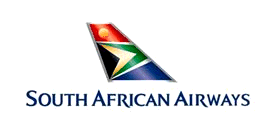 SAA’s Financial Health: Navigating Turbulence, Charting Growth
SAA’s Financial Health: Navigating Turbulence, Charting Growth
South African Airways (SAA) has released its audited financial results for the fiscal year ending March 31, 2024, revealing a mixed performance marked by both growth and challenges. This in-depth analysis provides African travel agents with valuable insights into the airline's current financial standing, operational scale, and future prospects.
SAA generated R7.0 billion in revenue, a notable 23% year-on-year increase. However, the airline reported a net loss of R354 million, a stark contrast to the R210 million profit in the previous year. This shift is attributed to several factors, including a substantial R415 million foreign-currency translation loss due to the volatile rand.
External pressures, such as the Ukraine conflict’s impact on jet fuel costs, a global aircraft shortage that inflated leasing expenses, and delays in aircraft deliveries, further compounded the airline's financial challenges. These factors contributed to a decline in EBITDA, which swung from a positive R436 million to a negative R90 million.
Despite these setbacks, SAA maintains a strong cash position of R1.4 billion, with zero borrowings and R6.4 billion in equity. This robust balance sheet provides a solid foundation for the airline's ongoing recovery and expansion plans.
Operationally, SAA navigated global aircraft constraints, operating a fleet of ten aircraft serving 15 destinations. The airline achieved a 42% increase in flights flown, with significant growth in intra-African routes and the launch of new services from Johannesburg and Cape Town to Sao Paulo.
Professor John Lamola, SAA’s Group CEO, acknowledged the past period of uncertainty but emphasized the airline's current focus on structured reconstruction. This includes strengthening governance and management systems, modernizing the aircraft fleet, and expanding the route network to enhance the customer experience.
The FY2023/24 financial statements represent the finalization of outstanding audits from the business rescue period, resolving all prior-year adjustments. A R431 million gain, initially recorded as sundry income, has been reclassified as a prior-period adjustment to retained earnings, impacting the reported net loss.
To bolster confidence in its financial reporting, SAA’s Board has implemented an Audit Health Plan, standardizing controls, expanding internal audit capacity, and strengthening collaboration with external auditors. This commitment to transparency and accountability aims to ensure accurate and timely financial reporting.
Lamola expressed confidence in SAA’s financial progress, highlighting strengthened revenue streams, cost containment measures, and a debt-free balance sheet. He attributed the airline's recovery to the support of stakeholders, including the Shareholder Representative, Minister Barbara Creecy, the Department of Transport, Chairperson Derek Hanekom, and the SAA Interim Board.
For African travel agents, SAA’s financial performance presents a mixed picture. While the airline's revenue growth and operational expansion are positive signs, the net loss and external challenges warrant attention. The airline's strong cash position and commitment to restructuring offer reassurance, but agents should closely monitor SAA’s progress and adapt their strategies accordingly.
The expansion of the route network, particularly within Africa and the addition of the Sao Paulo route, creates new opportunities for agents to offer diverse travel options. However, the ongoing aircraft shortage and potential for further disruptions require agents to remain flexible and explore alternative carriers when necessary.
SAA’s focus on modernizing its fleet and enhancing the customer experience is crucial for regaining market share and attracting discerning travelers. Agents can leverage these improvements to promote SAA as a preferred carrier for both business and leisure travel.
The airline's strong financial foundation, despite the current net loss, provides a degree of stability and suggests a positive long-term outlook. However, the impact of external factors, such as fuel price volatility and global economic conditions, will continue to influence SAA’s performance.
African travel agents should stay informed about SAA’s ongoing restructuring efforts, fleet renewal plans, and route network expansion. This knowledge will enable agents to make informed decisions, manage client expectations, and capitalize on emerging opportunities in the South African and broader African travel market.
SAA’s commitment to robust governance and financial transparency, as demonstrated by the Audit Health Plan, is a positive step towards building trust and confidence among stakeholders, including travel agents and passengers. This commitment to accountability is essential for the airline's long-term success.
The airline's focus on cost containment measures, while essential for navigating current challenges, should not compromise the quality of service and customer experience. Agents should monitor SAA’s performance in this area and provide feedback to ensure that cost-cutting measures do not negatively impact traveler satisfaction.
The growth in intra-African flights is a positive development for regional connectivity and aligns with the broader trend of increasing intra-African travel. Agents can leverage this trend by promoting multi-destination itineraries and showcasing the diverse tourism offerings across the continent.
The Sao Paulo route opens up new opportunities for travel between Africa and South America, catering to both business and leisure travelers. Agents can capitalize on this new connection by developing specialized travel packages and promoting the cultural and economic ties between the two regions.
SAA’s financial performance, while facing headwinds, reflects the airline's resilience and determination to overcome challenges. The airline's strong cash position, focus on restructuring, and commitment to customer experience provide a basis for optimism. African travel agents are encouraged to stay engaged with SAA, monitor its progress, and leverage its strengths to create successful travel experiences for their clients.
